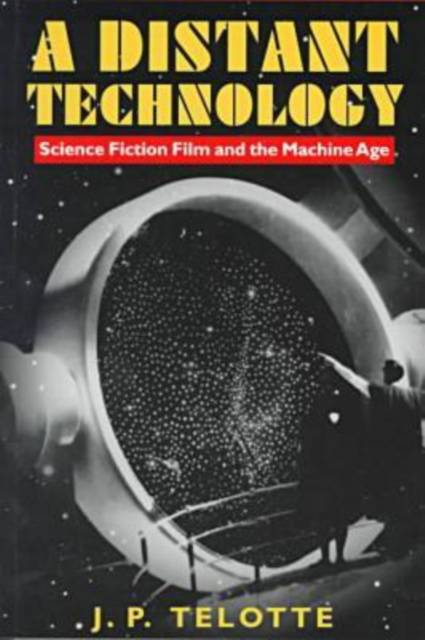
- Retrait gratuit dans votre magasin Club
- 7.000.000 titres dans notre catalogue
- Payer en toute sécurité
- Toujours un magasin près de chez vous
- Retrait gratuit dans votre magasin Club
- 7.000.0000 titres dans notre catalogue
- Payer en toute sécurité
- Toujours un magasin près de chez vous
Description
Science fiction films celebrate and critique the impact of a burgeoning technology on the world's cultural, political, and social milieu.
The Machine Age, roughly delineated by the two decades between World Wars, was a watershed period during which modern society entered into an ambiguous embrace with technology that continues today. J. P. Telotte carefully blends film, technology, cultural, and genre studies to illuminate this nearly forgotten era in our cinematic history and to show, through analysis of classics like The Invisible Ray, Metropolis, and Things to Come, how technology played a major role as motif, "actor," and producer.
What he also discovers as he ranges among the American, British, Russian, French, and German science fiction cinema -- as well as mainstream films, figures, and cultural products such as the New York World's Fair -- is a fundamental ambivalence, embedded in the films themselves, about the very machine-age ethos they promoted. Even as advances in the technical apparatus of filmmaking elevated it from mere entertainment to a medium of general communication and genuine artistic expression, Machine Age science fiction films remained curiously distant from and often skeptical of the very machines on which their narratives focus.
The resulting tensions, Telotte writes, "thus seem to intersect with those implicit in a Western world that was struggling with its own transition into the modern," rendering the films' task inevitably paradoxical and difficult
Spécifications
Parties prenantes
- Auteur(s) :
- Editeur:
Contenu
- Nombre de pages :
- 230
- Langue:
- Anglais
Caractéristiques
- EAN:
- 9780819563460
- Date de parution :
- 26-02-99
- Format:
- Livre broché
- Format numérique:
- Trade paperback (VS)
- Dimensions :
- 155 mm x 235 mm
- Poids :
- 489 g

Les avis
Nous publions uniquement les avis qui respectent les conditions requises. Consultez nos conditions pour les avis.






